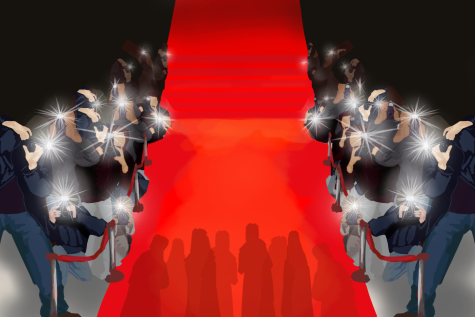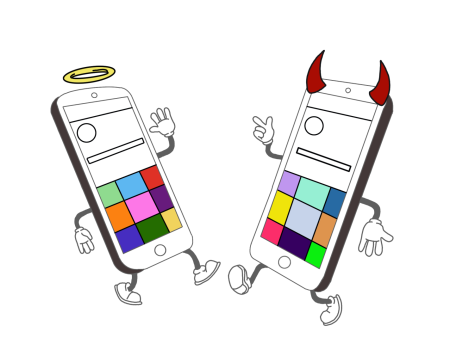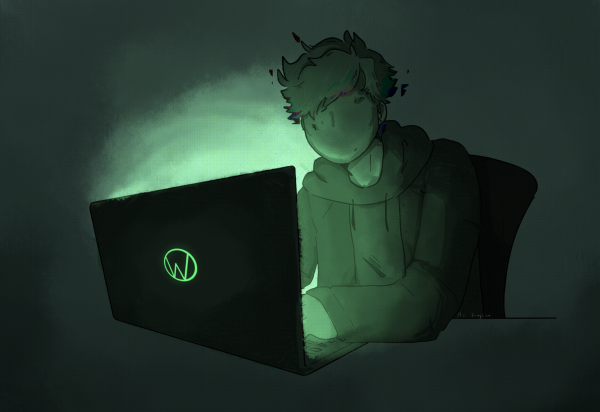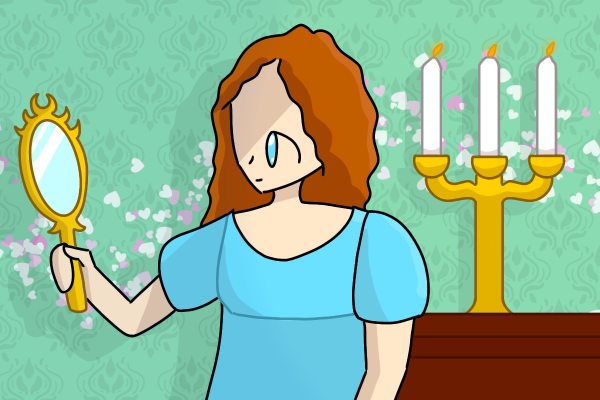Culture clash
No subject has more light shed on it than the dark side of celebrity culture, and the brightest stars can form the darkest shadows. From a distance, K-pop culture can seem shiny and perfect but get too close, and you could get burned.
*Trigger warning: The following content contains mentions of suicide*
Fame and fortune. The hypothetical dream no one ever really wants to touch. We all daydream about it— the idea of becoming an adored figure by the public and the money to prove it. However, the spotlight hides a lot in the shadows. Decades of headlines describing the horrifying fates faced by the creatures transformed by fame have done more than enough to prove that not everyone is suited for stardom. To follow in those footsteps would mean walking down the red carpet stained from the blood, sweat, and tears of those who suffered at the hands of so-called glory.
When it comes to the Hallyu wave, the main drive that keeps K-pop’s popularity growing and growing is marketing. The companies know what the people want, and they give it to them plus more. What we see on stage— the elaborate outfits, the entrancing choreography, the addictive music— is all a result of a marketing campaign trying to sell their products: idols. This is an industry that knows how to manipulate the public into buying into the illusion that the world of K-pop is an effortlessly manufactured paradise where people wake up to clear skin, positive attitudes, and hard work that always pays off. Of course, plenty of corporations have been exposed for hiding what really goes on beneath all of the pretty faces; but they still accomplish getting people not to care about the root of the problem— to ignore all the dirty secrets for the sake of being able to enjoy the parasocial relationships they’ve formed with their favorite celebrities. Slave contracts, stalking, and overall danger to their lives just for walking down a street; the dark side of Kpop is the way it is because of how willing people are to suck out everything people are worth. You literally sell your soul for the sake of the spotlight.
If you were to compare Hollywood and Hallyuwood, there is clearly a different standard when it comes to public reputation. Here in the US, not only is there an awareness of the scandals and controversies celebrities get up to when not in front of a camera (or sometimes when there is), there is almost a craving for this sort of gossip. All press is good press. Besides, who cares when it’ll all get swept under the rug after a few weeks, anyways? In South Korea, however, any minor misdemeanor can result in a huge offense to the public. Any mistake must be punished. The nerve to step out of line is unthinkable and disrespectful to the fans who’ve dedicated their time to “support” their idols’ careers. It’s not about trying to sell their music or their talent— they’re selling themselves. A persona that offers the idea that the idol isn’t human— they are Gods, angels, a gift from the heavens that is supposed to be shared with everyone. They aren’t allowed to have struggles or negative emotions; here in America, where tragedy is practically offered on a plate to sell headlines, and just an ocean away, just a sliver of pessimism is met with hostility and accusation of being ungrateful.
In the world of entertainment, the drama just naturally ensues. Passion and emotions are constantly flying everywhere, and some people just end up caught in the crossfire. It’s the same pattern over and over. That’s not the problem; humans being humans isn’t a flaw; it’s simply natural. But the image that K-celebrities are forced to enact isn’t true at all; it’s artificial. Every aspect of their lives is decided by the company they sign with. What they eat, how they speak, who they decided to date if that’s even an option; all of this is carefully considered in terms of what is best for their reputation, and an idol’s autonomy is extorted from them under the threat of being left behind and forgotten.
This is news. Which makes it all the more concerning. Every couple of years or even months, you’ll hear on the news of another tragedy that struck the K-pop community where an idol has decided to take their own life, crumbling under the pressure of being under constant surveillance, not just from the companies but from the fans. And the people will mourn, but soon enough, the next batch of trainees are ushered in with the intention of continuing the cycle and replacing those who become “obsolete.” This is the reality we are all aware of, and yet hardly anything has changed.
Of course, there is a bottom line. An effort has been made with mental health awareness beginning to take priority. Just recently, South Korea passed a bill in order to protect underage K-pop idols from labor exploitation and reinforces the rights and safety of minors. There might be light at the end of the tunnel yet. All it takes is just a little acknowledgment that this is an issue that could help be solved with strong enough protests and pushback. Nobody should have to suffer for the sake of enjoyment.
Your donation will support the student journalists of West High School. Your contribution will allow us to purchase Scholarship Yearbooks, newsroom equipment and cover our annual website hosting costs.

(she/her) Nicole is a senior and in her third year on staff and second year as opinion editor. You can usually spot her walking down the hall wearing her...

















